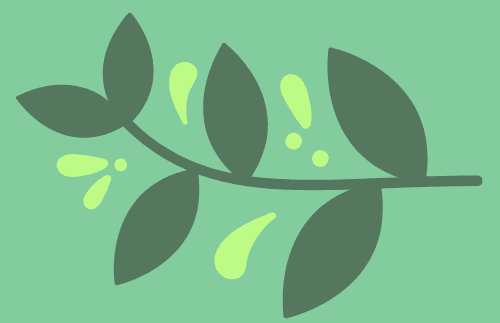
Many websites recommend the use of vinegar as a weed killer, and yes, white vinegar, typical of our kitchens, has some effectiveness against weeds. But it is not a miracle cure. Far from it! I suspect that most gardeners will be a little disappointed with the results.
The first thing to understand is that vinegar is a contact herbicide: it must be sprayed on the entire exposed part of the plant. It does not penetrate into the cells and therefore has no residual effect. As soon as it dries out, its effectiveness is over and it breaks down quickly. This at least gives the advantage that you can plant or sow in the area within 24 hours after treatment.
Which vinegar?

White kitchen vinegar normally contains 5% acetic acid, more rarely 7%. This is fine for making pickles, but usually not enough to kill anything other than young weeds, especially seedlings. Cleaning vinegar (found in the hardware store cleaning supplies aisle) contains 10% acetic acid and is more effective: it can kill the ripening leaves of most perennial weeds, but only partially damages the already mature leaves. Thus, ordinary white vinegar is not a very effective herbicide in the summer or fall, when most leaves are mature, but is much more effective in the spring, when the leaves are still young.

Horticultural vinegar. Source: www.mungerlawnscape.com
To effectively kill mature leaves (summer and fall leaves), you have to step up your game. Horticultural vinegar contains 20% acetic acid, which is four times more than white vinegar. It can kill mature leaves… but then, it is a fairly toxic product that must be applied with gloves and safety glasses. And what a smell: tears will come to your eyes! Horticultural vinegar can be difficult to find locally. It may be necessary to order it by mail.
Leaves, but not roots
No matter what type of vinegar you use, it will only kill the foliage. This is sufficient to control seedlings and young plants, and often annual weeds, but perennial weeds (horsetail, plantain, quackgrass, sow thistle, etc.) will usually regrow from roots that have not been touched. Therefore, it will be necessary to repeat the treatment after a week or two when the leaves reappear. Thus, several treatments may be necessary to permanently control most perennial weeds.
To make the vinegar more effective
To make the herbicide more effective, add a little pure soap, such as insecticidal soap, perhaps 5 ml per liter of vinegar, to help the product stick to the foliage better. Many websites recommend adding salt to vinegar, but keep in mind that salt can permanently sterilize the soil and is not an environmentally friendly product at all.
Protect other plants

Vinegar is a total herbicide: it affects any plant, undesirable or desirable. It must therefore be applied with great care. It is usually used on weeds growing on patios, sidewalks, driveways, etc. or in the vegetable garden before seeding or planting vegetables, not in the lawn or growing garden. It can be used to treat individual weeds, such as in the lawn, but it must be applied with great care, affecting only the unwanted plant, not its neighbors.
Application instructions
Apply the vinegar as a spray on a sunny, dry day, without wind. Ideally, the temperature should be above 21°C. Avoid applying it to surfaces that can be tarnished by high acidity, especially metal surfaces such as garden furniture and fences.
Now it’s up to you to decide if applying vinegar is really the right method to control weeds under your conditions. Often, pulling them manually is more effective!


